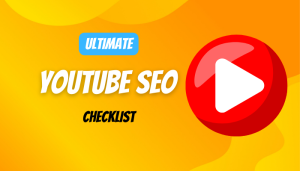Why Students Struggle to Learn SEO (and How to Actually Get Good at It)
SEO can feel confusing when you’re just starting out. There’s jargon, changing algorithms, dozens of tools, and advice that seems to conflict. This guide explains the real reasons students struggle to learn SEO—and gives you a clear path to build practical skills that lead to results.
technical SEO
keyword research
on-page optimization
GA4 & Search Console
content strategy
Table of Contents
Why Learning SEO Feels Hard
1) SEO is cross-disciplinary
Real SEO blends content writing, user research, HTML/CSS basics, analytics, and marketing strategy. Students often try to learn everything at once and end up overwhelmed.
2) Advice changes quickly
Core updates, E-E-A-T, and helpful content changes can make yesterday’s tactics less effective. Without a framework, it’s hard to judge what still matters.
3) Theory without practice
Watching tutorials is easy; applying SEO on a live website is where learning sticks. Many students delay building test projects—and progress stalls.
4) Tool overload
Ahrefs, Semrush, Screaming Frog, GA4, Search Console, and more—great tools, but distracting until you know the questions you’re trying to answer.
New to the fundamentals? Start with our concise primer: Learn SEO.
Top Student Struggles (and Simple Fixes)
Keyword research confusion
- Problem: Chasing high-volume terms with strong competition.
- Fix: Start with intent. Target long-tail phrases, questions, and comparisons your audience actually searches. Build topical clusters.
- Practice: Map 1 primary keyword + 3–5 support terms per page.
See: Keyword Research service (methodology overview).
On-page SEO vs. “SEO copy”
- Problem: Stuffing keywords or over-formatting every paragraph.
- Fix: Lead with value. Use clear H2/H3s, one main idea per section, internal links that genuinely help.
- Checklist: Title tag, H1, first 100 words, image alt, internal links, FAQ.
Reference: On-Page Optimization.
Technical SEO feels “too codey”
- Problem: Fear of HTML, status codes, and sitemaps.
- Fix: Learn the basics only: crawl vs. index, canonical, robots.txt, Core Web Vitals, redirects (301/302).
- Practice: Run a crawl, fix 404s, compress images, add lazy-load.
Guide: Technical SEO.
Link building anxiety
- Problem: Thinking links = spam or outreach scripts only.
- Fix: Create linkable assets: statistics pages, templates, local guides, or industry glossaries. Promote them politely.
- Low-risk wins: Unlinked brand mentions, partner pages, supplier directories.
Approach: Link Building.
Data without insight
- Problem: Looking at GA4/Search Console but not acting.
- Fix: Track only a few KPIs: clicks, CTR, ranking buckets, conversions. Add annotations when you publish or update pages.
- Routine: Review weekly; pick one action to test.
Helpful: SEO Audit (what good reporting looks like).
CMS hurdles (WordPress/Shopify)
- Problem: Themes and apps create duplicate URLs or slow pages.
- Fix: Control indexation, use lightweight themes, compress media, keep plugins lean, and set sensible canonical rules.
- Practice: Test your template with PageSpeed Insights.
Need help? SEO Services.
A Practical 90-Day Learning Path
Use one small project (portfolio site or local test site) as your sandbox. Learn → apply → measure → improve.
| Weeks | Focus | Outcomes |
|---|---|---|
| 1–2 | Fundamentals & setup | GA4 + Search Console connected, sitemap submitted, simple keyword list for 5 pages. |
| 3–4 | Site structure & on-page | Clean URL structure, titles/H1s set, internal links added, 2 blog posts published. |
| 5–6 | Technical basics | Fix 404/redirects, compress images, LCP improvement, core pages pass CWV on mobile. |
| 7–8 | Content quality & topical depth | Cluster of 3–5 articles around one theme, FAQs added, schema markup for articles/products. |
| 9–10 | Links & mentions | 1–2 linkable assets created, outreach to partners/communities, fix unlinked mentions. |
| 11–12 | Measure & iterate | Update low-CTR titles, add internal links to rising pages, document wins/next actions. |
Prefer a structured program with feedback? Explore our SEO Training Course.
Hands-On Projects That Teach the Right Skills
Local SEO mini-site
Create a 3–5 page site for a fictional local service (e.g., “Surat Bike Repairs”). Optimize a Google Business Profile, write one location page, and collect 3 citations.
Topic cluster build
Pick a niche (e.g., beginner videography). Publish one pillar page + 4 support articles. Interlink them and add FAQs based on People Also Ask.
Speed & tech tune-up
Take any WordPress demo theme, run a crawl, fix 404s, compress images, implement lazy-load, and re-test Core Web Vitals.
Starter Tool Stack (Free or Low-Cost)
Research
- Google Keyword Planner, Trends, and autocomplete
- AnswerThePublic / AlsoAsked (questions)
- Ahrefs or Semrush (trial/student plans)
Technical
- Screaming Frog SEO Spider (crawl)
- PageSpeed Insights & Lighthouse
- Search Console (indexing & queries)
Content & tracking
- GA4 (engagement & conversions)
- Docs/Sheets templates for briefs
- Markup helpers (schema generators)
For a deeper stack with dashboards and SOPs, see our SEO Services.
What to Measure (So You Improve Faster)
| KPI | Where | Why it matters | Action if low |
|---|---|---|---|
| Impressions & clicks | Search Console | Shows discoverability and interest | Expand topics; improve titles/meta |
| CTR | Search Console | Indicates packaging quality in SERP | Rewrite titles; add FAQs/structured data |
| Engagement rate | GA4 | Quality of content and UX | Improve intros, layout, internal links |
| Conversions | GA4 | Business impact | Refine offers, CTAs, and page flow |
| Core Web Vitals | PSI / GSC | Page experience and ranking signals | Optimize media, fonts, theme scripts |
A Simple Study Routine
Daily (45–60 min)
- Read one reliable update (Search Console blog, vendor docs).
- Do one micro-task on your project (title fix, internal links).
- Log what you changed and why.
Weekly (2–3 hrs)
- Publish or improve one page or article.
- Review GSC queries & rankings; note wins and gaps.
- Try one experiment (FAQ block, schema, layout tweak).
SEO Learning FAQs
How long does it take to learn SEO?
With steady practice, you can be effective in 3–6 months. Mastery takes longer—focus on building small wins every week.
Do I need to code?
No. Basic HTML/CSS knowledge helps, but modern CMS platforms handle most tasks. Learn to diagnose issues and brief developers clearly.
Which certifications matter?
Hands-on results matter most. GA4 and Google Search Console proficiency are useful; portfolio case studies carry real weight.
What should my first project be?
A small site you control: local service demo, hobby blog, or a simple one-product store. Apply the 90-day path in this guide.
Want guidance, feedback, and a proven path?
SEO Training for Students & Beginners
Structured lessons, assignments, and reviews—learn keyword research, on-page SEO, technical basics, and reporting with confidence.
Mentored Practice & Real Projects
Work on live campaigns with guidance. Build a portfolio that shows rankings, content improvements, and business impact.
Not sure where to start? Request a free outline of your 90-day plan via our contact page.


